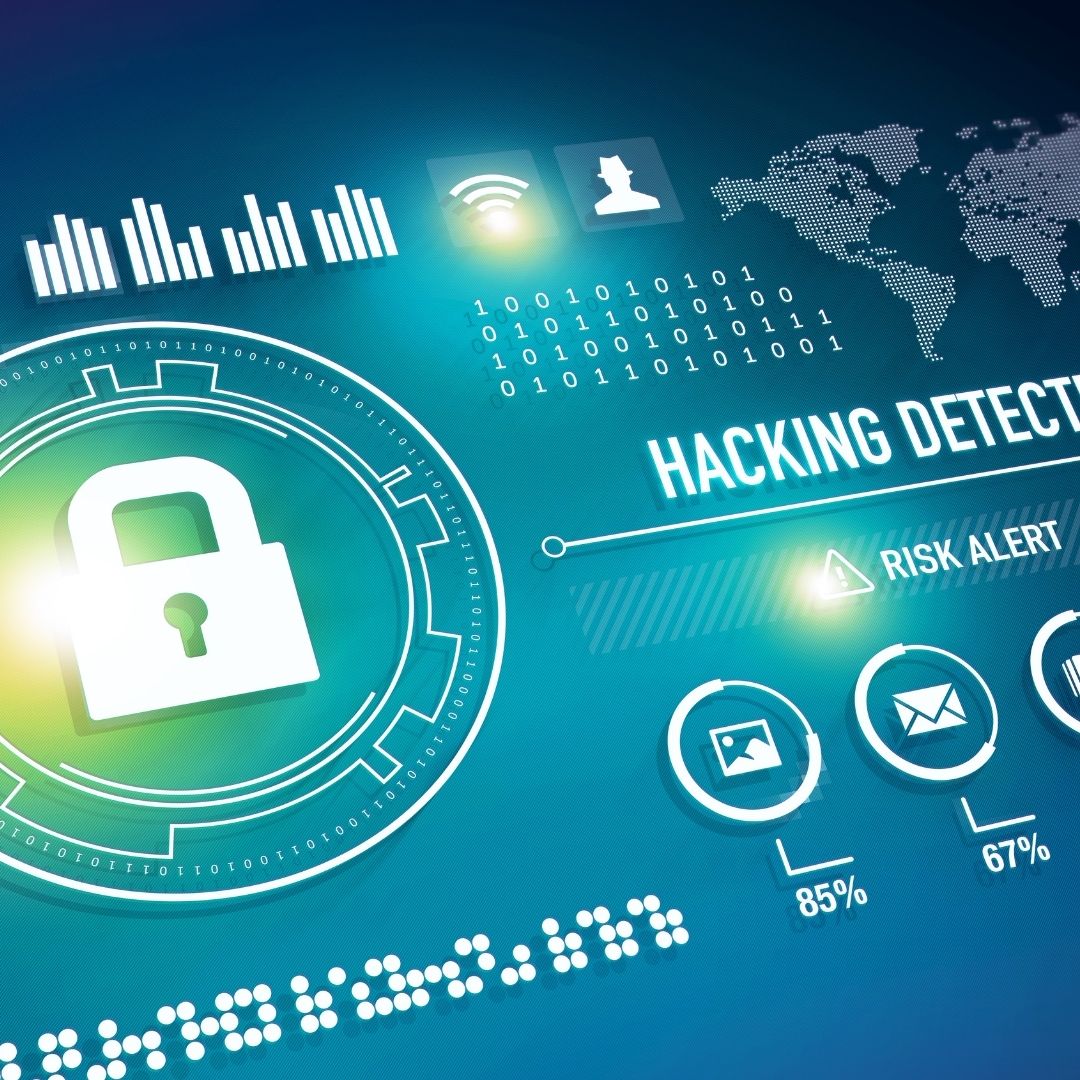Wooden Spoon: Blog

Digital Security and Online Safety
Are you confident in your company’s digital security and online safety practices? Digital revolutions have rocked every global sector, from healthcare, real estate, financials to communication. Starting in the 80s, the digital revolution changed the global lexicon of technology. (does anyone know what a typewriter is anymore?)
Phishing and malware threats only began terrorizing computers in the 90s. The digital world is new and evolving rapidly. Internet safety and similar coined phrases have only existed for less than 15 years.
The world is paying for its lagging online security.
Digital Security; Re-active vs. Pro-active?
Re-active strategies to cyber security can be defined as the time it takes a cyber-attacker to infiltrate and execute its code, which is significantly higher than the time it takes to defend against the attack.
If you detect the attack, it is too late.
A significant number of digital systems around the globe have a re-active approach to their protection. New initiatives are coming into play as cyber-security begins to mature.
Zero Trust as a Strategic Priority
A strong progression in cyber security has been the advancement of Zero Trust Architecture. Zero trust eliminates the foundational concept of trust from an organization’s framework. Invented by John Kindervag of Forrester Research in 2010, the model is based on the outdated reality that everything within an organization should be trusted.
Kindervag realized early on; trust is a vulnerability. Once on the zero-trust network, users can move laterally across all resources and devices they are given access to. Forester discovered that the point of entry on the network was usually not the target of the attack.
Digital Safety and Online Security
Thriving in the 21st century requires the internet and its vast resources. It is a prerequisite for any business to be safe while online, whether emailing, texting, or working on a digital platform. The following are some things that individuals must do to stay safe, whether you are surfing for enjoyment or working:
- Keep your computer and digital devices up to date and well patched. Every enterprise on the planet is harping, sorry consulting, on this requirement. 21st century operating systems, down to their source code, are aligned with safe online practices. Make sure you are not caught up in the IoT craze without knowing the device is secure. A full 98% of all IoT device traffic remains unencrypted. A large number of IoT devices are shipped with suspicious or malware code.
- Strong passwords, hopefully, your Company has at least two-factor or better password technology. Nearly all quality password managers have the option to create a string of dissimilar characters. The best hacking groups will move on from an unbreakable password.
- Phishing scams are on the rise. Some of the most devastating cyber-attacks in the last 20 years have started from those innocent little Phishing Emails. Everyone has seen the scams, whether you know it or not. Emails promise the best deals of the century, or Amazon gives something away for free. Train your employees to stay away at all costs.
Thriving
Thriving in the digital economy, IT professionals must protect the enterprise. Security must evolve and proactively succeed in an unpredictable cyber-landscape.
Personnel are assets rather than liabilities in a zero-trust framework. Every enterprise should be exploring the advantages of Zero-Trust.
Digital security for the enterprise:
- Define which uncertainties the Company faces NOW!
- Create probable threat scenarios that may unfold in different time frames relative to company goals.
- Devise a specific strategy to deal with each threat. Balance commitment with a course of action.
- Identify landmarks that will signal a change in the landscape.
Bain & Company, a global management consulting firm, has three critical elements when balancing commitment to a robust strategy of success: Thriving in Uncertainty
- No-regret actions that benefit the Company under any scenario.
- Hedges are strategic tactics for a specific scenario. Smaller-scale pilot actions that can be ramped up quickly.
- Big-Bets are large-scale actions in the current landscape, waiting to pull the trigger until clarity reaches the marketplace.
Stay Ahead of Your Digital Competition
The phrase and sentiment is as old as business itself, “Stay Ahead of the Competition.” In the new digital arena, the phrase is the same; only the tactics are changing.
Homeland Securities, AV-Test Institute, records nearly 450 thousand new malicious codes unleashed every day. Yes, that is EVERY DAY! The enterprise and small business must have a strategic plan of defense against a constant cyber-threat barrage. One wrong email, opened by an innocent employee, and the Company goes down, maybe forever.
Scarry statistics:
- 63% of successful cyber-attacks start from internal sources, either by control, error, or outright fraud against the Company.
- Social engineering is involved in 33% of all data breaches.
- 43% of data breaches in America involve a small company.
- The average size of a data breach is $25,575. (I know my small business cannot afford those breach dollars)
Emerging Risk and Success
Prosperous companies are always on top of risk, whether it is market forces, internal workloads, or cyber-security. With the magnitude of cyber threats taking hold, Wooden Spoon IT Support offers the best choice for businesses of all sizes. It is IT companies like the Wooden Spoon that are preparing businesses of all sizes for the next generation.
A successful company or one that has that aspiration must have multiple plans in place against every threat scenario.
There is no easy road to a completely safe network, digital platform, or IoT device. Leadership in the enterprise and each individual must have a cyber-plan to ward off an attack. Business must train their employees and have a comprehensive reaction approach to imminent threats.
Sitting in a cozy office chair boasting “it does not happen to me” will not work in this digital world.
Everyone must use the tools in front of them to wipe out the scourge of ransomware, phishing attacks, and the thousands of other malware codes introduced EVERY DAY.






